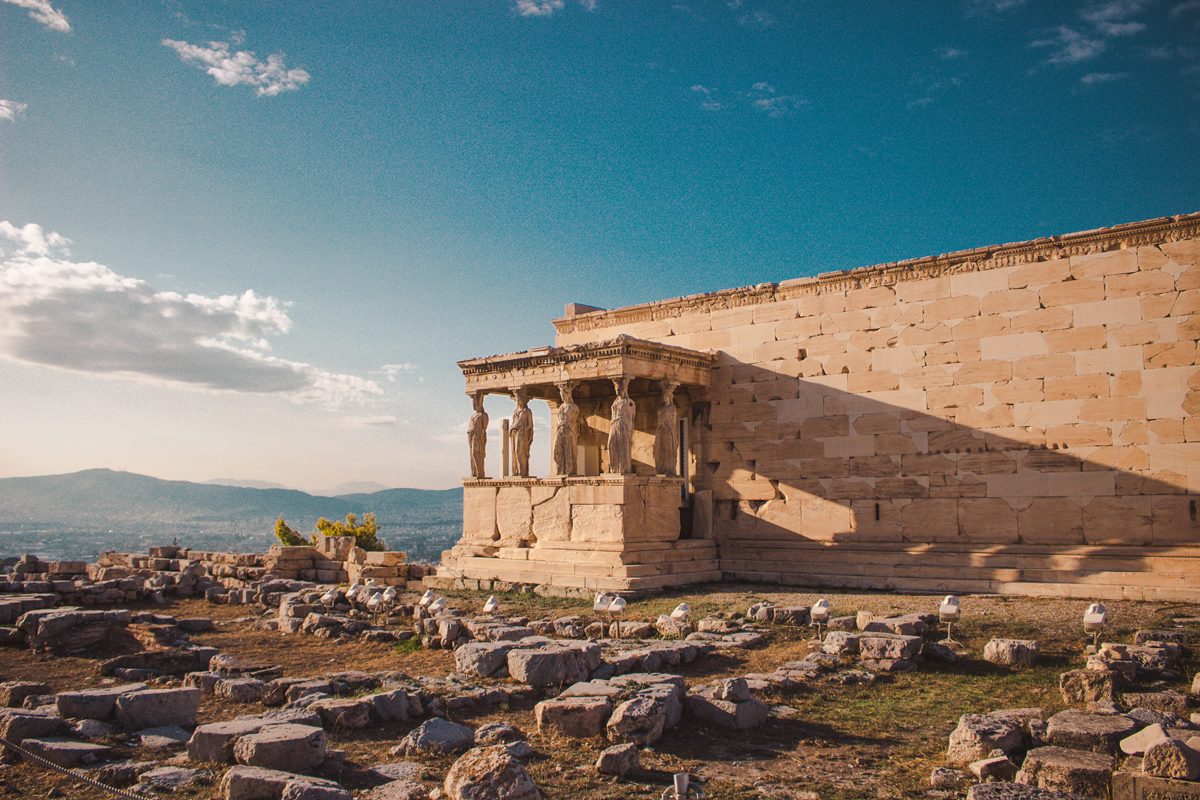Mythology in Verse: Poems about Myths
Mythology—collections of tales from different cultures which delve into various facets of the human condition—often addresses the origins of animals, people, place-names, or the dichotomy of evil and good. These myths are meant to comfort and explain the phenomena of the world.
Myths also have a home in poetry, and poems inspired by them range from the classical period to the contemporary. From Shakespeare to Sylvia Plath, these six poems explore different myths.
“Orpheus” by William Shakespeare
Orpheus with his lute made trees
And the mountain tops that freeze
Bow themselves when he did sing:
To his music plants and flowers
Ever sprung; as sun and showers
There had made a lasting spring.
Every thing that heard him play,
Even the billows of the sea,
Hung their heads and then lay by.
In sweet music is such art,
Killing care and grief of heart
Fall asleep, or hearing, die.
“Athena Girl” by Nikita Gill
Her heart is wisdom skinned
and wit warmed splendor,
the echoes of a war cry holding
its four chambers together.
She rises like Athena
on a night of victory dancing.
She rises like the blood moon
in a sky of a thousand nebulae bursting.
“Medusa” by Sylvia Plath
Off that landspit of stony mouth-plugs,
Eyes rolled by white sticks,
Ears cupping the sea’s incoherences,
You house your unnerving head—God-ball,
Lens of mercies,
Your stooges
Plying their wild cells in my keel’s shadow,
Pushing by like hearts,
Red stigmata at the very center,
Riding the rip tide to the nearest point of departure,
Dragging their Jesus hair.
Did I escape, I wonder?
My mind winds to you
Old barnacled umbilicus, Atlantic cable,
Keeping itself, it seems, in a state of miraculous repair.
In any case, you are always there,
Tremulous breath at the end of my line,
Curve of water upleaping
To my water rod, dazzling and grateful,
Touching and sucking.
I didn’t call you.
I didn’t call you at all.
Nevertheless, nevertheless
You steamed to me over the sea,
Fat and red, a placenta
Paralyzing the kicking lovers.
Cobra light
Squeezing the breath from the blood bells
Of the fuchsia. I could draw no breath,
Dead and moneyless,
Overexposed, like an X-ray.
Who do you think you are?
A Communion wafer? Blubbery Mary?
I shall take no bite of your body,
Bottle in which I live,
Ghastly Vatican.
I am sick to death of hot salt.
Green as eunuchs, your wishes
Hiss at my sins.
Off, off, eely tentacle!
There is nothing between us.
“To Asgard” by Rachel Piercey & Emma Wright
Come across the rainbow bridge
to Asgard, where the Norse gods live!
Odin is the ruler here,
he strokes his beard, he shakes his spear,
he keeps a pair of wolves as pets
and flies a horse who eight legs.
Come across the rainbow bridge
to Asgard, where the Norse gods live!
Frigg is queen, and she can see
what every person’s fate will be,
and whether it will turn out well
or badly, though she’ll never tell.
Come across the rainbow bridge
to Asgard, where the Norse gods live!
The strongest of them all is Thor
whose hammer causes thunderstorms.
He crushes mountains, likes to flirt,
has two goats pull his cart to work
Come across the rainbow bridge
to Asgard, where the Norse gods live!
Freya’s husband roams the worlds,
so she cries tears of solid gold.
In feathered cloak, boar at her side,
she goes to seek him far wide.
Come across the rainbow bridge
to Asgard, where the Norse gods live!
Loki is the trickster god:
he causes trouble, then he’s off,
and even Odin cannot make
this wily wicked god behave.
Come across the rainbow bridge
to Asgard, where the Norse gods live!
Their world is full of beasts and swords,
serpents, giants, magic wars.
They feast and fight and feast again
but even Asgard has to end…
So while there’s still a rainbow bridge:
to Asgard! where the Norse gods live…
“Aphrodite” by Ovid
even the sun
whose light
rules all the
stars has known
love’s kingdom.
the mistress of love is not kind
she is not malevolent either.
even the toughest of warriors have
known the touch of venus
through the outreach of her pink light
that shines between us.
“Circe’s Grief” by Louise Glück
In the end, I made myself
Known to your wife as
A god would, in her own house, in
Ithaca, a voice
Without a body: she
Paused in her weaving, her head turning
First to the right, then left
Though it was hopeless of course
To trace that sound to any
Objective source: I doubt
She will return to her loom
With what she knows now. When
You see her again, tell her
This is how a god says goodbye:
If I am in her head forever
I am in your life forever.
For further reading, the work of William Butler Yeats is a delightful world to immerse yourself in if you wish to discover more about poetry inspired by mythology. He wrote poems inspired by Celtic mythology, as seen in “The Song of Wandering Aengus” where he tells of the god of love, Aengus.




